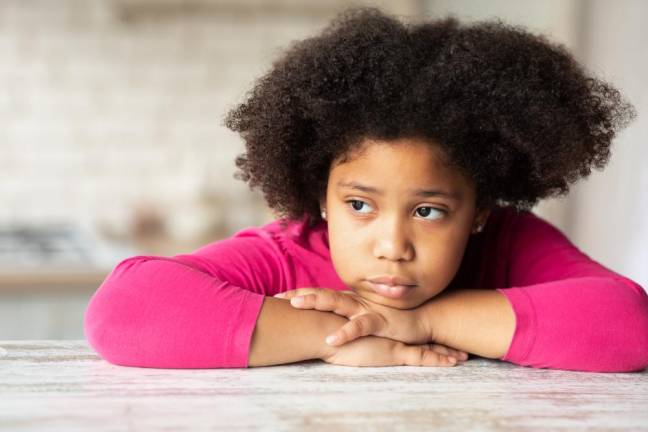Battle back-to-school blues
Before summer skids to a halt, get your kids ready for the structured, nerve-wracking days ahead

A summer of baseball, bike-riding and basking in the sunshine is almost in the rearview mirror, and that first day of school is right up the road – good news to some and dreadful news to others. Children of all ages have apprehensions about school, but they don’t have to. Dr. Michelle Kees, a psychiatrist with the University of Michigan Health System, offers her advice for keeping the school outlook as bright as a new pair of sneakers:
Elementary School Children
Parents of first-time or young students often are nervous, and their kids can pick up on that. Keep things comfortable by talking about expectations and feelings. A shopping trip for supplies is both a relaxed and relevant forum for conversation. Having friends in the class also helps to reduce anxiety. Any persisting signs should disappear soon after classes begin.
Middle School Children
Pre-teens may experience as much social pressure during their middle school years as they do academic pressure, and a decrease in openness with parents may make anxiety not as easy to pick up on. Parents should use a change in or reasoning for certain behaviors as a focal point for conversation and to share feelings. A lethargic, withdrawn attitude may be signs of a more serious problem, such as depression.
High School Children
Teenagers can feel very overwhelmed with the pressure to fit in and succeed academically. Their reluctance to talk is all the more reason for parents to keep open lines of communication and an interest in their friends and activities, which may help teens open up. Headaches, dizziness and nausea may be signs of anxiety issues, and shifts in behavior, academic performance and socialization could be signs of depression.
Kids who are reluctant to go to school don’t just wish for extra hours under the covers. Teasing or difficulty learning could lead to school anxiety. Open talks between parents and children can help keep anxiety from becoming a problem, but if it persists they should turn to the school or a medical professional for help.